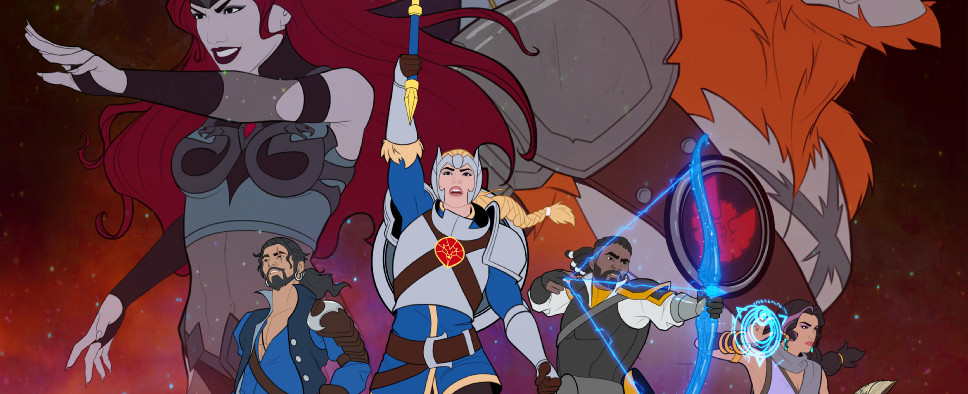MythForce Developer Interviews
-
Category: News ArchiveHits: 927

A while back, we got a chance to read this here interview with Beamdog's CEO Trent Oster that revolved around the studio's roguelite adventure MythForce. And now, we can follow that up with this interview featuring the game's project director Luke Rideout, and this one with Nikki Rae Hallow, the voice behind Victoria in the game.
Here are some sample questions:
WHAT GAMES FIRST ATTRACTED YOU TO GAME DESIGN?
I've always been interested in game design, ever since I was very young. My dad was a software engineer, so we had an early personal computer terminal at home called the TI-99 4A from about as far back as I remember. He helped me build a simple version of the first village from Zelda 2: The Adventure of Link—though I never really had a head for programming.
I was drawing levels for platforming and top-down RPG games that were entirely in my head from childhood, but the games that really opened my eyes to the possibilities of games were the point & click adventures of the late 80s, like Monkey Island and Quest for Glory.
WHO ARE SOME OF THE CREATORS WHO'VE INSPIRED YOUR WORK?
I've been fortunate in my career to have had a number of truly great and inspiring mentors who helped to shape me as a game designer and producer. My first “real” job in games was working under Takuma Endo, who was the creator of the Tenchu series and a pioneer of the Stealth Action genre of games. I also had the honor to work—and creatively butt heads with—Yu Suzuki of Shenmue and Virtua Fighter fame. I also consider it an honor to work with a great creative mind like Trent here at Beamdog.
Aside from those who had a direct hand in my development as a game creator, I've also always been inspired by industry greats like Roberta Williams; Lori & Corey Cole; the trio of Ron Gilbert, Dave Grossman, and Tim Schafer; and of course trailblazers like Sid Meier.
[...]
WHAT'S THE UNIQUE CHALLENGE OF VOICE ACTING AS OPPOSED TO STAGE OR SCREEN ACTING?
One of the most difficult aspects of voice acting is that you have to convey all of your emotions, opinions, and actions through the voice alone. On stage or screen, we so often rely on our facial expressions or body language to do the work for us, but with voice acting those physical cues go out the window. There are still ways to use those physical subtleties to your advantage though; similar to a phone conversation, you can tell if a person is happy, smiling, or sad by the depth of their voice.
HOW DID YOU FIRST BECOME INVOLVED IN VOICE ACTING?
I first took an interest in voice acting because of my mom. She was a professional clown and puppeteer for years and could do a million voices on command. After graduating from university and diving headfirst into my full-time acting career, I was lucky enough to land a lead role on a cartoon almost immediately. I've been doing cartoons, corporate and educational voiceover, and now video games ever since.

